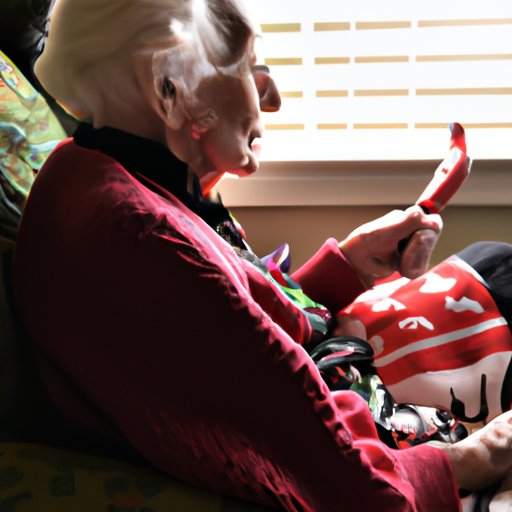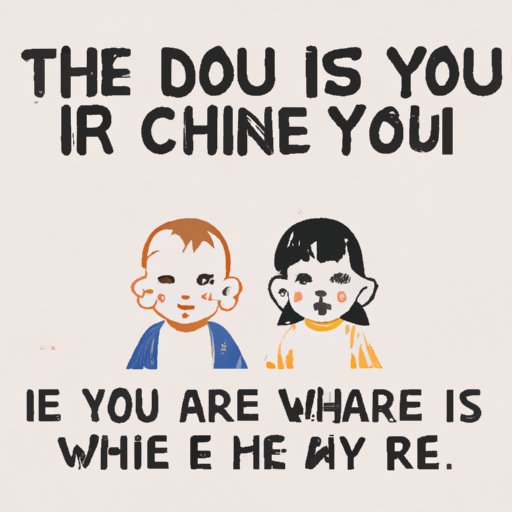Introduction: Are We the Same Person We Were as a Child?
The question of whether we remain the same person throughout our lives is one that has plagued philosophers for centuries. As we grow and evolve, our personalities, values, and beliefs all undergo changes over time. But, how much of our childhood selves remain with us as adults? What role do life experiences play in shaping our identities? This article seeks to explore the evolution of personality over time, investigating how childhood experiences, life events, and trauma can shape who we are today.
Analyzing the Evolution of Personality Over Time
To better understand how our personalities change over time, it’s important to examine how childhood experiences shape our views and beliefs today. According to developmental psychologist Erik Erikson, the environment we grow up in and the relationships we form during childhood have a significant impact on our personalities as adults. In his stages of psychosocial development, Erikson argues that our early experiences influence our sense of identity and self-confidence in later life.
For example, if an individual experienced a secure attachment with their parents growing up, they may be more likely to feel comfortable exploring new opportunities and taking risks as an adult. On the other hand, if an individual experienced a lack of emotional support in childhood, they may struggle to trust themselves or others and feel less confident when making decisions.
In addition to childhood experiences, life events can also play a role in our personality development. When faced with difficult situations or traumatic experiences, our personalities can change drastically as we cope with the aftermath. For instance, if someone experiences the death of a loved one, they may become more withdrawn or anxious. Similarly, if someone faces financial hardship, they may become more risk-averse or pessimistic.

Exploring How Our Values Change as We Age
When comparing our childhood selves to our adult selves, it’s clear that our values and beliefs have changed significantly over time. While some aspects of our personalities remain the same, such as our core values, our outlook on life often evolves as we age. We may become more open-minded or less trusting, depending on our life circumstances.
It’s important to note that the effects of trauma and adversity can also contribute to changes in our personalities. Traumatic events can cause us to become more guarded or pessimistic, while overcoming adversity can lead to greater self-confidence and resilience. The way we process and respond to these experiences can have a lasting impact on our identities.
Conclusion: Summarizing the Findings and Encouraging Reflection and Self-Discovery
In conclusion, it is clear that our personalities are shaped by both our childhood experiences and the life events we encounter. Our core values may remain the same, but our outlook on life and our response to challenges often evolves over time. To truly understand ourselves, it is important to take the time to reflect on our past and present experiences and to consider how they have shaped who we are today.
(Note: Is this article not meeting your expectations? Do you have knowledge or insights to share? Unlock new opportunities and expand your reach by joining our authors team. Click Registration to join us and share your expertise with our readers.)
